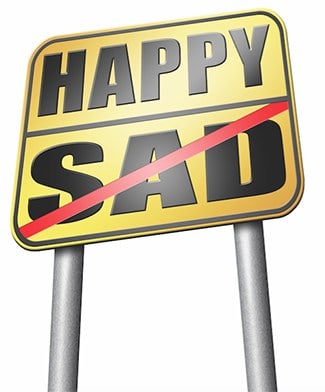While not sleeping well can lead to depression or be a symptom of depression, it isn’t true for all people.

This reward center, or ventral striatum, helps reinforce behaviors that are rewarded and reduce those that are not, according to a news release by the university. Previous studies have shown that people with a more active VS are more resilient to stress. Also, electrical stimulation of the VS has reduced depression in patients when other treatments have not worked, the news release states.
“It’s almost like this reward system gives you a deeper reserve,” says Ahmad Hariri, professor of psychology and neuroscience at Duke and co-author of the study. “Poor sleep is not good, but you may have other experiences during your life that are positive. And the more responsive you are to those positive experiences, the less vulnerable you may be to the depressive effects of poor sleep.”
The research paper appeared in the Sept. 18 Journal of Neuroscience.



